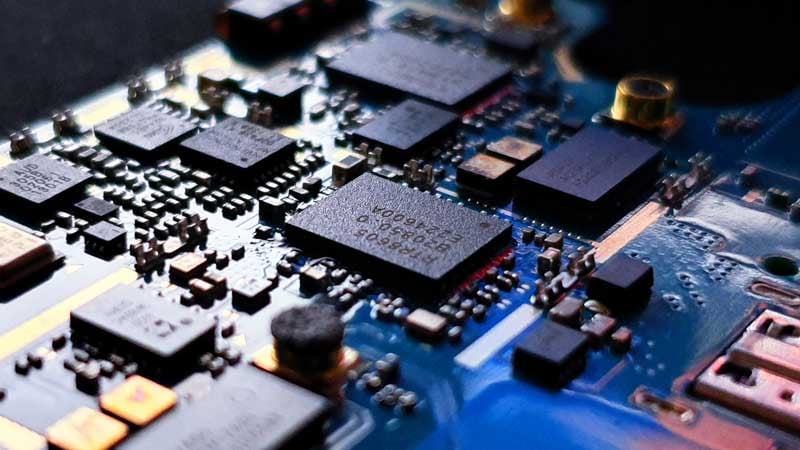
- Electrical and electronic engineering major
A general idea about Electrical and electronic engineering specialty
Engineering is one of the most popular – and practical – university degrees today. However, there are several forms of engineering. Electrical engineering and electronic engineering are two of the most popular categories. Academically, they are frequently combined into a single subject or degree.
Electronics engineering is a branch of electrical engineering that focuses on the design and repair of circuits and the systems that support them. To build the networks, various nonlinear and active electrical components are employed, and communication mechanisms are built to send the information to other systems. Electrical engineering is the design and application of any electrical energy-related system. Electrical engineers design and develop all electrical systems, including aircraft engines, radar and GPS systems, generators, and so on. Electrical engineering includes all electrical and electronic specialties.
What are the advantages of studying electrical and electronic engineering?
A degree in this field will provide you with great insight into the operation of electrical equipment and technologies. It's obvious that in a future expected to be filled with new electric technology, this might be to an extremely important degree. Your degree studies will provide you with a solid technical understanding of a wide range of fields, including electronics, signal processing, power engineering, mechatronics, and engineering management. Along with academic experience, there will usually be a lot of practical training to ensure you're ready for an engineering career when you graduate. You will have several employment options if you get a degree in Electrical and Electronic Engineering. Jobs in aircraft, telecommunications, robots, broadcasting, computer engineering, or system analytics might be fascinating.

Areas of work in electrical and electronic engineering after graduation
The electrical and electronic engineering sector is full of jobs. Here is a list of the most important jobs that graduates in electrical and electronic engineering can work in:
- Technical departments in telecommunications and information companies
- Controlling systems
- Manufacturing electrical equipment
- Programming and controlling design companies
- Computer companies
- Electrical medical machinery manufacturers and design companies
- Communications
- Signal processing
- Nuclear engineering
- Energy Systems Engineering

What are the departments of the Faculty of Electrical and Electronic Engineering?
Electronic engineering has many departments. Some universities combine branches and departments, while others are limited to two types. Here are examples of electrical and electronic engineering branches and sections:
- Remote communication engineering is concerned with the transfer of data over a channel such as axial cable, fiber optics, or vacuum.
- Control engineering.
- Hardware engineering.
- Computer engineering.
- The engineering of the VLSI deals with the manufacture of integrated circuits and electronic components.
The most important Electrical and electronic engineering subjects and courses
Subjects in this specialization may differ from year to year and from university to university, depending on the faculty programs:
- Digital Communications
- Power generation methods
- Electrical machinery
- Digital Electronics
- Processor electronics
- Electronics and its principles
- Computer programming
- Electrical machinery design
- Engine techniques
- Electrical circuits
- Thermodynamics
- Math
- Physics
- Chemistry
- Transformers
- Power transmission and generation systems
- Linear systems
- Software engineering
- Microwave engineering
- Electrical measurement and processing units
Learn about Electrical and Electronic Engineering Studies in Turkey and the most important information about its costs, remarkable Turkish universities, admission rates, and other important information through the following article: Study of Electrical and Electronic Engineering in Turkey

Edited by Al-Dirasa Platform©
Did you like this topic? You can share it with your friends now.
University Name |
University Ranking |
|
|---|---|---|
| Yeni Yüzyıl University | Private | Click for more details |
| Esenyurt University | Private | Click for more details |
| Haliç University | Private | Click for more details |
| Bahçeşehir University - İstanbul | Private | Click for more details |
| Gedik University | Private | Click for more details |
| Istanbul Commerce University | Private | Click for more details |
| İstinye University - Istanbul | Private | Click for more details |
| Bilgi University - Istanbul | Private | Click for more details |
| Ankara Bilim University | Private | Click for more details |
| Okan University - Istanbul | Private | Click for more details |
| Antalya Bilim University | Private | Click for more details |
| Ozyegin University - Istanbul | Private | Click for more details |
| Kültür University - İstanbul | Private | Click for more details |
| Ted University | Private | Click for more details |
| Gelişim University - Istanbul | Private | Click for more details |
| Atilim University - Ankara | Private | Click for more details |
| Uskudar University - Istanbul | Private | Click for more details |
| Turkish Aeronautical Association University | Private | Click for more details |
| Maltepe University - Istanbul | Private | Click for more details |
| Yeditepe University - Istanbul | Private | Click for more details |
| Kadir Has University - Istanbul | Private | Click for more details |
| Yaşar izmir University | Private | Click for more details |
| Ankara Medipol University | Private | Click for more details |






